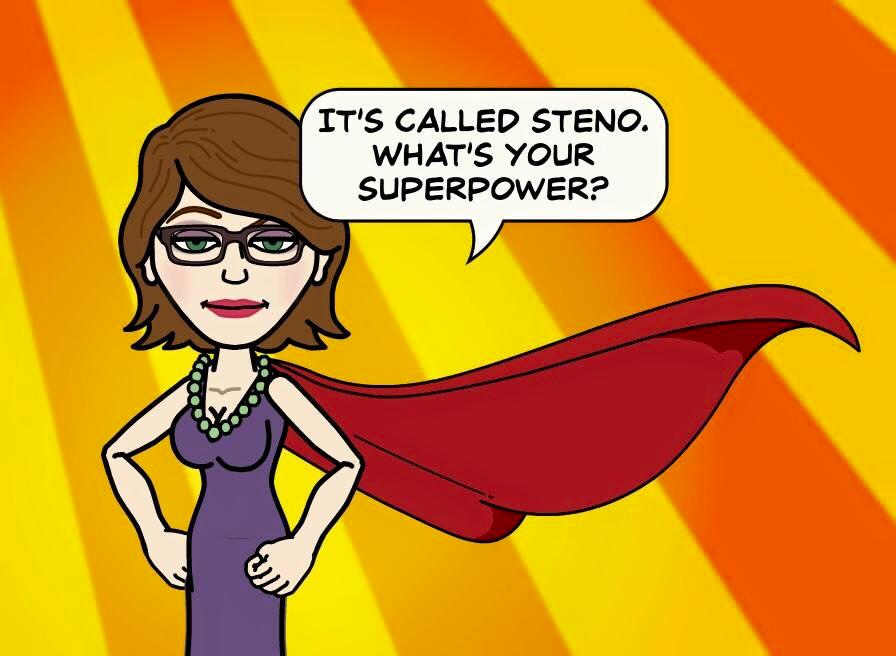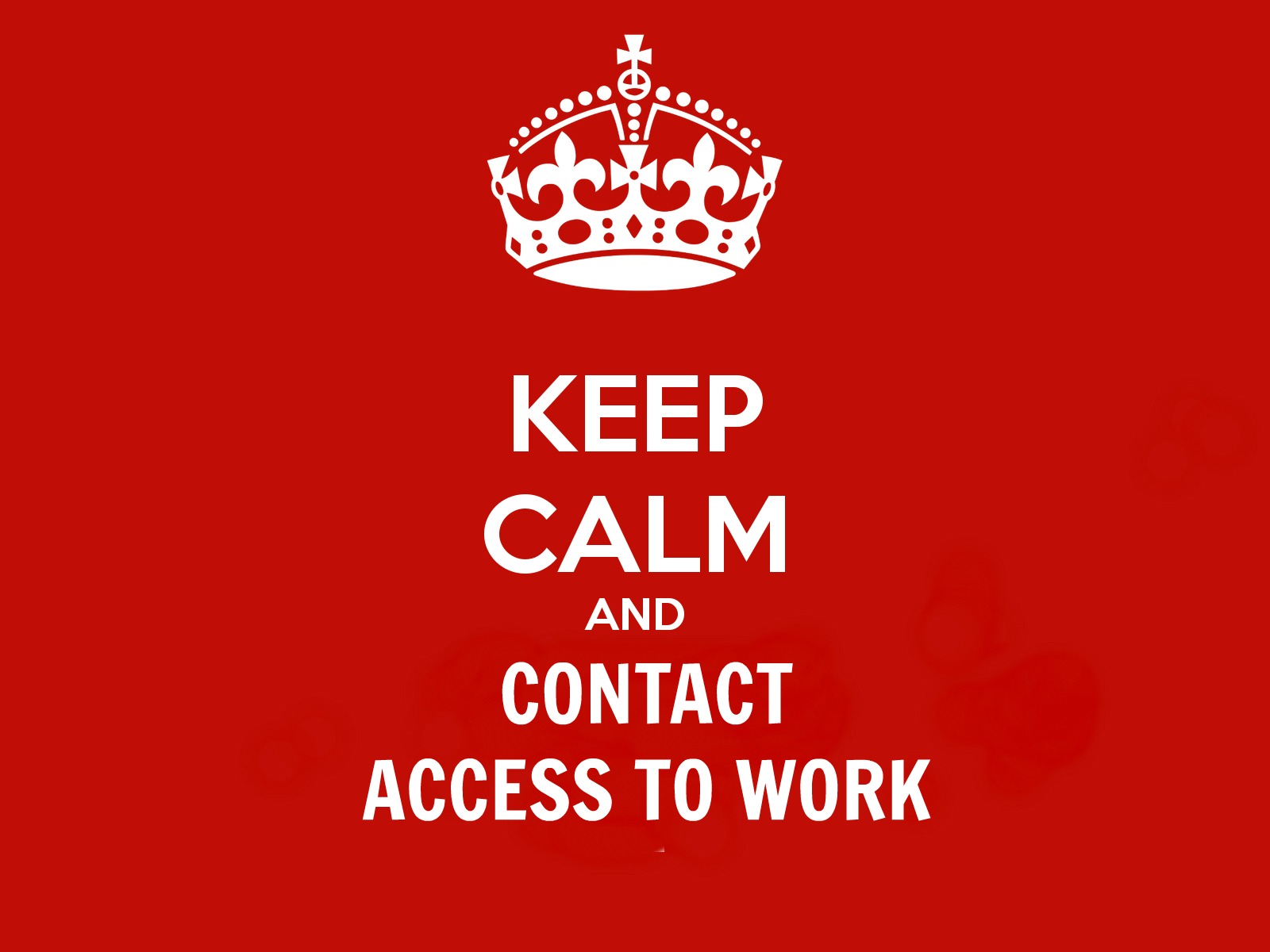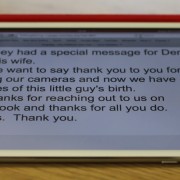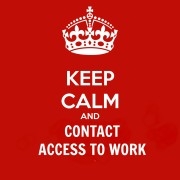Communication support for deaf and hard of hearing people.
Blog
Working with Deaf People – 20 Things They want you to Know
/0 Comments/in Diversity and inclusion /by Tina Lannin
It’s always awkward starting a new job or welcoming a new colleague into the fold of your close knit group. When a hearing friend of mine was appointed customer care liaison for a reputable insurance company she felt like a burden to her fellow colleagues. They had to take time out of their busy schedules to train her and got frustrated when she forgot how to transfer calls.
She felt they were inconvenienced by her presence. She wanted to be liked, so she tried to figure things out on her own. Then, something bad happened. My friend advised a client that he would receive double his claim amount, because his wife died due to violent circumstances. However, the policy clearly stated that clients would only receive a double claim pay out if they or their spouse was disabled due to violent circumstances, not death.
Although the claims consultant had called the man explaining my friend’s mistake, the damage had been done and my friend was called into her manager’s office. Reprimanded and sent back to her desk with a verbal warning, my friend was humiliated. The incident could’ve been avoided, but my friend didn’t want to inconvenience her colleagues. This is how many deaf and hard of hearing people feel, every day.
It often seems as if hearing people just find us so inconvenient – as if I didn’t have to live with the ‘inconvenience’ every single day. . .
– Pamela Mang, deaf licensed marriage & family therapist.
Lack of Understanding when Working with Deaf People
It hurts when you don’t get invited to go with the team to the local coffee shop or pub, just because they find it awkward or inconvenient to communicate with you.
People need to understand that those who are deaf are capable of doing anything, no matter what. To me, my ears are broken, that’s all, but everything else is completely fine.
People think people with deafness are ‘slow’, ‘stupid’, not capable of working as a support worker, or even have an independent life.
They need to understand that deaf people face lots of barriers [in] communication.
– Eva Carlton, news.com.au
Deaf people face many barriers, especially when developing a career, but working with deaf people doesn’t need to be inconvenient, for either parties. There are many ways to improve communication with your deaf colleagues.
20 Things Your Deaf Colleague wants you to Know
- Look at me when you’re speaking to me. We try to pick up on all your facial clues, the ‘communication triangle’ includes your expressions, eyes, neck and lips. It all helps us ‘hear’ what you’re saying.
- When working with deaf people in an office setup, ask them where they’d like to be positioned. A quieter, well-lit area might be preferable.
- When speaking to a hard of hearing person (less than 70% hearing ability), try to pick a quiet room to have a conversation with us, not a noisy corridor. The canteen, an office party, or the pub at lunchtime, are all very challenging for a hard of hearing person, because we can’t screen out the background noise.
- It’s difficult for a deaf person to voice their opinion during a conversation. They can’t hear that a part of a conversation is about to end. Be a friend and make eye contact with your hard of hearing colleague to let them know to join in or ask a question.
- Speak slowly and don’t ramble. I know people tend to talk faster when they get excited, but I can’t share your enthusiasm when I don’t know what you’re talking about.
- Don’t say it doesn’t matter or that you’ll tell me later – it does matter and you could forget to tell me later, tell me now.
- Don’t ignore me because you think we won’t be able to communicate well. I am more nervous than you are, but I’d like to get to know you, just give me the chance.
- Do clue me in on the office conversation. Tell me what the topic’s about, context helps a lot when lip reading.
- Don’t shout. I need clarity not volume.
- Avoid standing in front of a light source when speaking with your deaf co-worker. They won’t be able to read your facial expressions.
- Be patient. Take your time and be kind. I’m trying my best to understand you. Don’t give up trying to have a chat with me, that will lead to both of us feeling isolated.
- Pause every now and then to allow your hearing-impaired colleague to catch up and ask questions.
- It’s better to rephrase what you’re saying rather than repeating yourself word for word. When I’m tired, my ability to lip read and listen weakens.
- Be courteous when speaking with your deaf colleague, when someone knocks on the door or your phone rings, tell them what’s happening and excuse yourself.
- If what you’re communicating is of vital importance, ask me to repeat it back to you so there are no misunderstandings. Follow up complex instructions with an email.
- I’m not ignoring you, I probably didn’t know you were talking to me. Be sure to get my attention by tapping my shoulder, flicking the light switch, wave to me, or walk up to me. Don’t walk up behind me – that’s scary.
- Noisy gatherings make it very difficult to hear. I’m not being anti-social, it’s just that crowds make things very stressful and it’s exhausting. Let’s go for a lunch or a drink instead. Be accommodating toward your deaf colleague.
- A hard of hearing or deaf person may not be able to hear on the phone. If they can’t, please don’t expect them to. I once had a manager insist I learn how to use the phone. This caused a lot of frustration and anger. It’s not that I was unwilling, I simply wasn’t able to.
- Share things with me, if everybody’s complaining about the irritating noise the printer’s making, tell me. Include me.
- Deaf people enjoy office gossip just as much, if not more, than their hearing colleagues. Don’t isolate us and keep in mind, a good lip reader can lip read from across the room.
Read our blog post on unleashing deaf employees’ superpowers for more tips.
Working with Deaf People during a Meeting
Meetings are always difficult for hard of hearing people. I can’t look at more than one person at a time when I’m lip reading. As a lip reader, I’ve asked a fast-talking colleague to slow down, her response was “I haven’t time to slow down” – yet another barrier I have to try and overcome.
I can’t lip read a group of people, it’s like watching two tennis matches at the same time. I might need assistive devices such as a FM listening system and I will need your co-operation to help make this work – speak clearly, loudly, and one at a time.
Notes regarding the agenda and talking points of the meeting are super helpful. Deaf people need to concentrate on listening and lip reading. We aren’t able to take in and recall all the information at once.
Don’t switch off the lights during a meeting – I can’t lip read in the dark. If you need to show a PowerPoint presentation give me a copy of the slides beforehand. This will help me and my captioner or notetaker follow along.
One-on-one conversations are easier for getting to know people. A good friend from my previous employment used to buy me a cup of coffee in the mornings, and we’d catch up on the day’s events. A lovely habit which I still miss.
Conclusion
Don’t be afraid to ask your deaf or hard of hearing colleague what you can do to help improve your communication. They’ll appreciate that you’re trying to build a relationship with them.
Meet up before or after work and catch them up on the latest office gossip. Include them in conversations and remember to get their attention first, then continue to look directly at the deaf person when speaking.
When working with deaf people, communication becomes even more important. It might be awkward at first, but soon you’ll chatting up a storm.
If you’d like to make your meetings or social events more enjoyable for your deaf co-workers contact us and get 50% off your first live captioning session.
Get your dream job with our remote captioning services
/0 Comments/in Live captioning services /by Tina Lannin
Remote captioning services are so much more than captioning provided from a different location to the event, meeting or teleconference you’re taking part in. They’re a life-changer.
Here are 5 ways the remote captioning services from 121 Captions can revolutionise your life at work.
1. Our remote captioning services keep you up to speed
Are you frustrated at not being able to understand or keep up with conference calls or meetings? With our remote captioning you don’t need to strain to hear people dialling in from train stations, or struggle to lip read the on-trend guy with the beard and moustache. Instead you can sit back, follow the captions streaming onto your laptop, smartphone or tablet and contribute just like everyone else.
2. Our remote captioning services become a contemporaneous meeting note
Another bonus with using our remote captioning services is that as soon as your call or meeting is over you’ll receive a transcription of the captioning. So you can check your understanding and recollection of the meeting and, if you’re feeling generous, share the transcription with your colleagues as a meeting note.
3. Our remote captioning services give you access to the latest thinking in your field
How many times have you looked at a conference agenda and thought, “I’d love to attend, but I won’t have a clue what’s being said”. No more! Our expert captioners can dial in to conferences and events from around the world and stream the presentations either just to you, or on the venue screens for the benefit of all delegates. What’s more, thanks to the market-leading software 1Fuzion, you can read the captions on top of any presentation slides or videos, meaning you don’t have to watch two screens at once.
4. Our remote captioning services can get you a better job
Have you always wanted to study further in your area of expertise? Perhaps an additional qualification would mean a pay rise, or the chance to get a better job? Well, now you can.
Our remote captioning services enable you to keep up with seminars, tutorials and online webinars just like anyone who doesn’t have hearing loss. And it’s so discreet your fellow students won’t be able to see the extra support you’re getting.
5. Our remote captioning services let you focus on what you’re good at
Using our remote captioning services mean that you can focus at work. No more struggling to hear. No more worrying about getting the wrong end of the stick. No more anxiety about your manager thinking you can’t do your job. Instead you can concentrate on working to the best of your ability, with the same opportunities as your hearing peers.
Book a free demo of your remote captioning services today!
Would you like the chance to focus on your job rather than your hearing loss? Get in touch today to find out how our remote captioning services can revolutionise your life at work.
Has 121 Captions changed your life? Tell us how!
 Lisa Caldwell works freelance as an accredited Phonak Roger Pen trainer with Credo Communications. You can catch up with her at credocommunications@gmail.com
Lisa Caldwell works freelance as an accredited Phonak Roger Pen trainer with Credo Communications. You can catch up with her at credocommunications@gmail.com
Supply the best captions & retain valued employees
/0 Comments/in Live captioning services /by Tina LanninHow having the best captions can help
Consider how appropriate support and the best captions can bring added benefits to your business.
Do you know how many of your employees have hearing loss?
Chances are it’s more than you think. 15% of all adults have hearing loss. And as only 16% of hearing impaired employees wear a hearing aid, the majority remain invisible.
With employees working to an older age and young people at increased risk of hearing loss, the number of staff members who have trouble hearing is only going to increase.
So, what can you do to ensure valued employees can keep working?
1. Ask the experts
It can be hard for employers to know how to get the best captions and support for their employees. So we suggest the first thing you do is to ask them what they feel they need.
If that still leaves queries, it’s time to call in external experts. In the UK organisations can benefit from Access to Work, a government scheme that provides free assessments of disabled employees’ needs.
An alternative is to ask a company with disability expertise for advice. They will assess your employee and advise on the best captions, equipment and other services to help.

2. Provide the best captions and support
The best captions and support for your employees don’t have to cost a lot. In fact, much of the support you can offer requires an outlay of just time and effort. Examples of positive support include:
• Getting your employee’s attention before you speak
• Facing them so they can lipread
• Giving them first choice of the seats in a meeting room
• Communicating via email or instant messaging
If employees need extra support like equipment or live captioning, you needn’t worry about the best captions or support blowing your budget:
• In the USA, your business may be eligible for up to $5000 tax credits
• In the UK, Access to Work may fund all or part of the cost.
Finding the best captions
Want your employees with hearing loss to understand and participate fully in meetings, training and seminars? Live captioning is the answer.
A range of companies offer captioning. But how do you work out who supplies the best captions?
You could take time to read through all the websites to compare services. So, for example we emphasise how our live captioning:
– Streams up to 300 words per minute
– Appears with less than 1 second time lag
– Streams naturally word by word rather than in chunks of text.
But the simplest way to assess what the best captions are is to test them. That’s why we offer a FREE trial of remote, live captioning so you can compare what we believe are the best captions on the market to those offered elsewhere.
Contact us today to see for yourself what the best captions look like.
What have you got to lose (except valued employees…)?
 Lisa Caldwell works freelance as an accredited Phonak Roger Pen trainer with Credo Communications. You can catch up with her at credocommunications@gmail.com
Lisa Caldwell works freelance as an accredited Phonak Roger Pen trainer with Credo Communications. You can catch up with her at credocommunications@gmail.com
The complete beginner’s guide to employing deaf people
/0 Comments/in Diversity and inclusion /by Tina LanninEmploying deaf people means a few simple adjustments

So, you’ve recruited a new employee who’s deaf. What next?
Here are six simple strategies to ensure effective communication in the office, meetings and on the phone.
-
Ask about their communication preferences.
Pick a random sample of 10 deaf employees and you’ll find ten different preferences for communication. Some deaf employees will need communication support such as a sign language interpreter, but many won’t. Some people prefer email communications rather than face-to-face, especially if working in an open-plan office where there’s background noise. Others prefer to speak face-to-face as they use body language to help understand what they hear. Don’t assume, just ask.
-
Find out what it’s like for your new employee at work.
Working well as a team depends on successful communication. So, it will make a big difference if your new recruit’s colleagues receive professional deaf awareness training. As well as being an eye-opener, it will also teach some basic ‘etiquette’ that will help everyone feel comfortable together.
-
Plan your office.
Being deaf at work can be isolating, so it makes sense not to give a deaf employee a desk facing a wall, or with their back to the rest of the team. Being deaf also has safety implications, so ensure at the very least that your new recruit has a couple of buddies who will alert them to any fire or bomb alerts. A better solution when employing deaf people is to give them the independence of a flashing alarm or pager which activates if they need to clear the building.
-
Manage your meetings
When you’re employing deaf people, meetings can be fraught with misunderstandings if they are not managed properly. Deaf people manage meetings in a variety of ways. Some can hear well enough with a combination of lip reading and assistive devices, such as a loop or Roger Pen. In this case establishing a meeting etiquette will make a big difference to their experience, such as ensuring participants raise their hands before they speak and don’t talk over each other. Other deaf employees need additional help, such as live captioning, sign language interpreters, or lip speakers. Find out your employee’s preference well before the first meeting.
-
Don’t assume they can’t use the phone.
Some deaf employees are comfortable using the phone either with just their hearing aids or using assistive devices. Others need extra help to understand what is being said. Remote live captioning via a Skype call or teleconference call enables deaf employees to relate to any number of participants, and participate fully. All they need is a tablet, laptop or smartphone to receive real-time captions word for word, with a time gap of less than one second.
-
Don’t panic about the cost of these adjustments.
Depending on the country you’re in, there may well be funding available towards the cost of the captioning, assistive equipment and communications support you’ll want to consider when employing deaf people.
To find out how remote live captioning can help your deaf employees communicate well by phone and in meetings, email us at bookings@121captions.com or call +44 (0)20 8012 8170.
A 5-step guide to getting help for your hearing loss at work
/0 Comments/in Live captioning services /by Tina Lannin
If you have hearing loss some of your day-to-day activities might be more of a challenge than for your hearing colleagues.
There’s no need to struggle. A Government scheme called Access to Work can help you get the equipment and communications support you need to manage your hearing loss at work.
Step 1: Check you’re eligible for Access to Work support:
You can ask for an Access to Work assessment if:
• Your hearing loss affects your ability to work, and
• You’re 16 or older, and either
o You’re about to start a job or work trial, or
o You’re already in a paid job or self-employed.
Your hearing loss must be a ‘disability’ – defined as ‘a physical or mental impairment which has a substantial and long-term adverse effect on [your] ability to carry out normal day-to-day activities’.
Step 2: Speak to your manager
Unless you’re self-employed you’ll need to explain to your manager that you need extra support because of your hearing loss. This is because your organisation may need to contribute towards the cost of whatever help Access to Work recommends you receive.
Access to Work will pay 100% of the approved costs if you:
• Are self-employed or
• Have been employed for less than 6 weeks.
If not, the amount your employer pays depends on how many employees it has. To find out more read the Employer’s Guide to Access to Work
Step 3: Apply for an Access to Work assessment
It’s easy to apply for an Access to Work assessment of how your hearing loss is challenging you at work. Simply:
Email: atwosu.london@dwp.gsi.gov.uk
Telephone: 0345 268 8489
Textphone: 0345 608 8753
Top Tip: if you don’t have a textphone, but your hearing loss means you struggle to use the phone, let Access to Work know that email is your preferred contact method.
Step 4: Prepare for your assessment
Don’t worry, your Access to Work assessment is not an exam. But it is your opportunity to tell your assessor how your hearing loss is affecting your work, and discuss what might help. So have a think about the support you want.
If, for example, you struggle with hearing teleconferences, webchats, presentations and training, live captioning from 121 Captions could make a huge difference. Get in touch and we can discuss a free, short demo to demonstrate the benefits of our live captioning services.
Step 5: Make sure the recommendations are put in place
Top Tip: if you don’t agree with the Access to Work recommendations, you can appeal. Details are on the award letter you receive.
Once you receive the recommendations from Access to Work, encourage your manager to get them in place as soon as possible. The quicker you get support for your hearing loss the more productive you will be as an employee.
To find out more about the support 121 Captions provide for hundreds of people with hearing loss at work, contact us.





